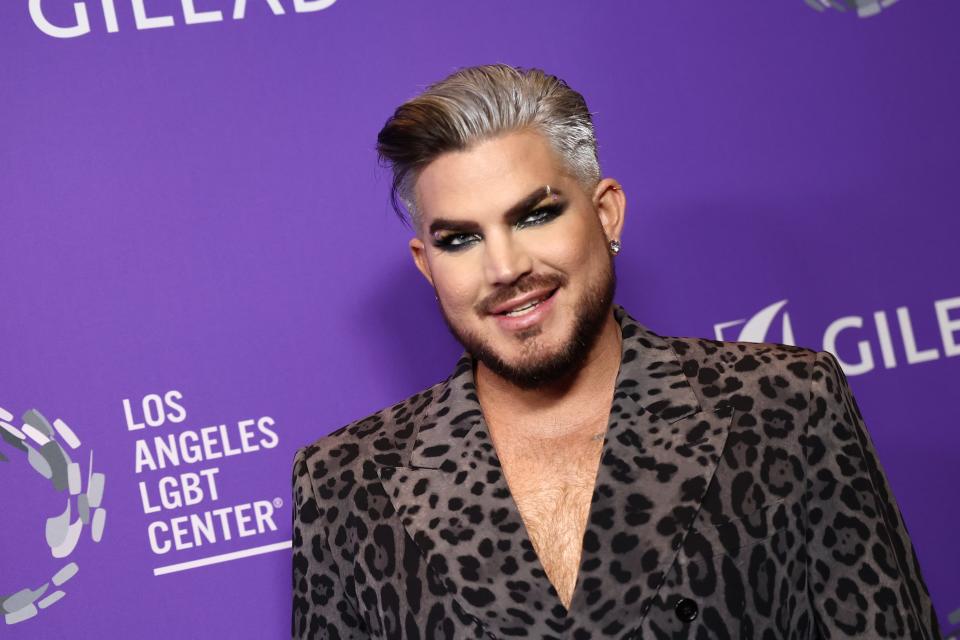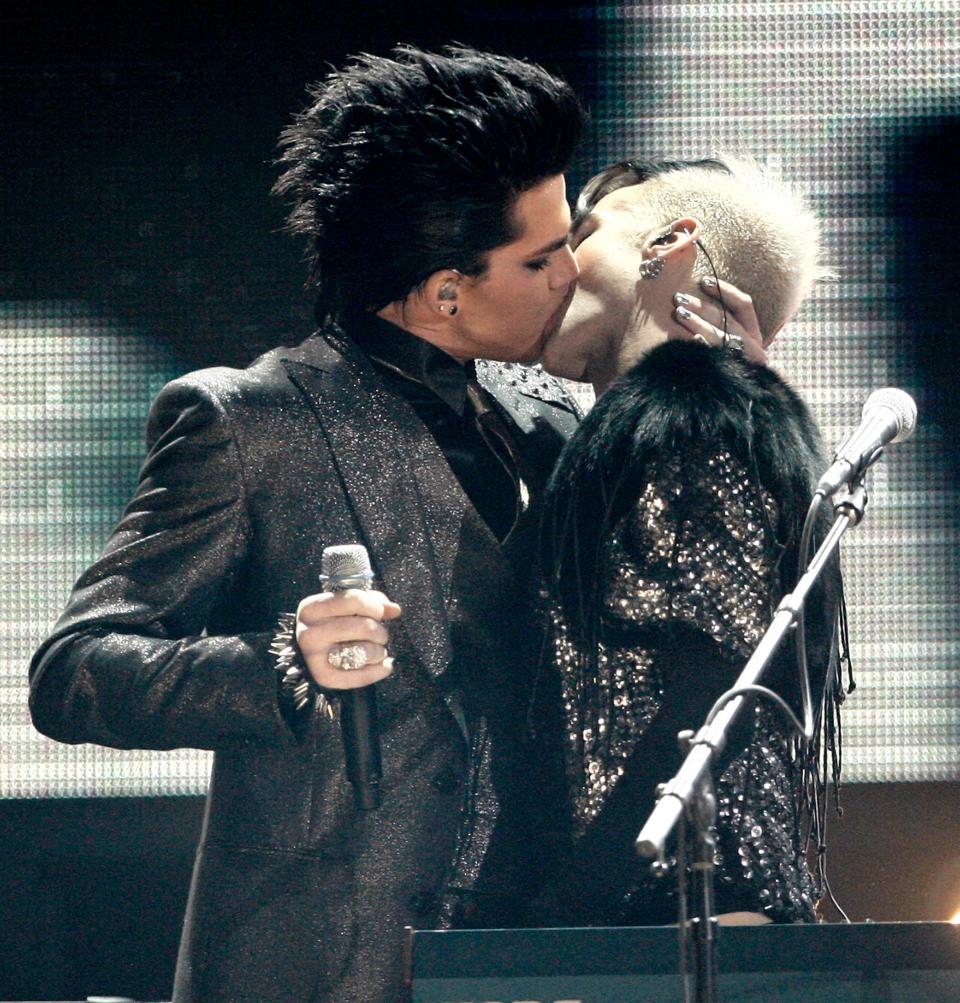Adam Lambert is owning his queerness. How the 'American Idol' star conquers homophobia
Adam Lambert placed second on "American Idol" about 14 years ago. Now, he's conquered a category all his own.
A big part of that journey? His queerness.
"I like not being like everybody else. I like finding my individuality," Lambert says over Zoom in April. His effervescent and electric tone soars across the screen: "Queerness in my career has given me a certain amount of purpose and drive, to prove that queer people are valid and can be successful and can connect and deserve every opportunity that our straight friends get."
Since "Idol," the singer, 41, has guest starred on "Glee," toured with Queen, started a LGBTQ nonprofit called the Feel Something Foundation, had his feature film debut in "Fairyland" and won a Creative Coalition award for his work elevating queer visibility in independent cinema. (That's all?!)
A far cry from his life pre-"Idol" to be sure. "When I was in my early 20s, I was really awkward. I wasn't owning it yet. And now it's like, 'Oh, OK, yeah, what are we doing?'"

Adam Lambert on coming out: 'The door flung open'
Lambert has regularly discussed his coming out experience and homophobia surrounding his Season 8 stint on "Idol."
"I was very comfortable with my sexuality and then quickly realized, 'Oh, I need to talk about it, because people are guessing and I haven't actually said anything,' " he says. "The idea of coming out felt like such an afterthought, because I came out when I was 18. And I was 27 at the time when I was doing Idol."
Lambert lucked out with supportive parents; his mom questioned him about his sexuality after their family saw a performance where the subject matter was about a gay man coming out to his parents and all hell breaking loose. Art did not imitate life.
"The door flung open, and we got to sort of go back through my childhood and laugh about everything," Lambert says. "And I'm glad she broke the ice on it because I was being kind of a wimp about it."
He, like many queer people, internalized his sexuality. He didn't know how to process it, who to talk to, where to turn.
"It was very elusive to me," he says. "I didn't know what I was feeling. I'm so happy for young people today, because of all the resources that are out there, and the information age and social media, and it's a totally different ball game."
Lambert says the real 'gay agenda' is telling people 'don't be miserable'
A "different ballgame" indeed, but one with its own share of backlash. Anti-LGBTQ legislation has popped up left and right throughout the U.S., sounding the alarm for queer people, Lambert included.
"One of the things that I always say is like, it's not contagious. When they say the gay agenda, which always gets under my skin that they say stuff like that, I think to myself, the only agenda I think I and my community have is to try to help people feel OK to be themselves," he says. "That's the agenda. The agenda is you're OK. Don't beat yourself up. Don't be miserable. Don't kill yourself, don't go down a dark path. There's a light to what you are and who you are. That's the agenda."
In a twist, though – especially for younger people – LGBTQ identity isn't a headline-grabbing announcement anymore.
"That's sort of what, in some ways, one of the things that I found challenging when I came out and was establishing myself, was that my sexuality preceded who I was and the music I was making, as far as the media was concerned, and some of the water cooler conversation, and I love how normalized it's gotten now," he says.
Lambert says "Idol" was nothing but supportive to him, even when pictures of him and an ex-boyfriend surfaced. Deep down, he knew his sexuality could get in the way of people's objectivity and the chance to show what he could onstage. He wonders whether homophobia indeed cost him the competition.
What got Lambert 'into trouble' – and what's next for LGBTQ community
Even after he came out publicly, pressures grew like weeds for the new celebrity. And not just among straight people, but gays too. What kind of gay was Adam Lambert? Was he gay enough?
When he kissed one of his male band members at the American Music Awards also in 2009, "It just all kind of happened. It was very impulsive. It wasn't something that I planned. And that got me into trouble."

The kiss "definitely put a damper on some of the potential opportunities and relationships that I had been set up to have. And I didn't really realize it at the time, but have come to realize it in years after based on talking to people."
But no matter. Today, his queerness drives him. The stakes couldn't be higher.
"We have to keep pushing, we have to push harder now. Because it's bigger than all of us now, and protect members of our community that are particularly under attack, like the trans community, who really are facing a lot of challenges right now," he says. "And even the strange phenomenon of this whole drag ban thing, which is the weirdest. It's the stupidest waste of people's energy. That's the way I look at it. There's so much more that we should be focused on as a country right now to help people and protect people."
More on LGBTQ community
Interesting: Gen Z is driving force among adults identifying as LGBTQ, poll shows. Here's a breakdown.
Let's talk about (queer) sex: The importance of LGBTQ-inclusive sex education in schools
Important: How Bad Bunny's gender fluidity is shaking up a genre, empowering the Latino LGBTQ community
Keep up with the labels What is pansexual? What to know about the LGBTQ label.
This article originally appeared on USA TODAY: Adam Lambert on queerness, drag bans, 'impulsive' AMA kiss, homophobia
